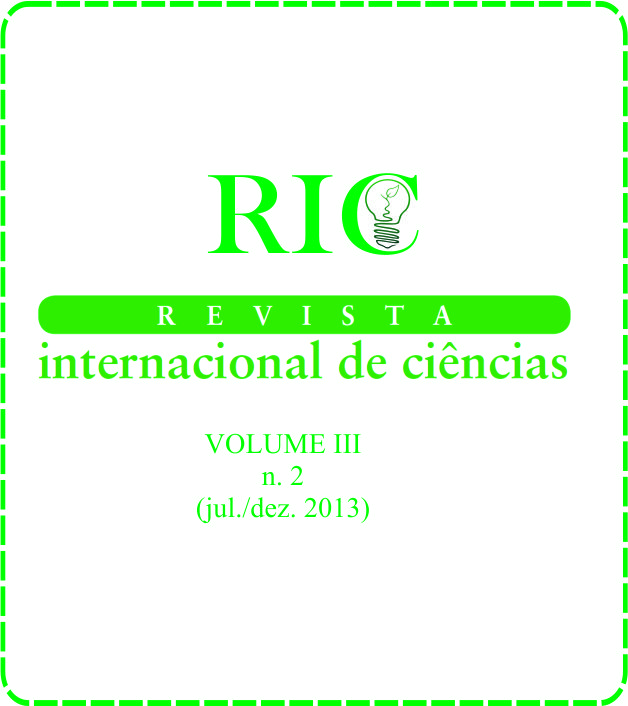MANAGEMENT OF SOLID RESIDUES IN URBAN CENTERS: DIAGNOSIS OF SOLID RESIDUES IN THE MUNICIPALITY OF IBIRITÉ/MG
DOI:
https://doi.org/10.12957/ric.2013.8181Abstract
Most of the city halls is not self-sufficient to manage the needs of sanitation of the city appropriately. In the attempt of supplying that demand, partnerships are accomplished, some types services, that not always they are accomplished in agreement with the political philosophy of the municipal district. They lack besides a technical managerial body with domain on what will be administered, financial resources for us to be applied. The lack of a solid database, added to the reflex of the behavior of the common sense, it favors mistaken interpretations in the socket of decision. That has been committing the quality of life of the population, of the city and adjacent areas. In the past of the administrative administration, the treatment given to the subject prioritized the services rendered of water and sewer, what was considered basic sanitation, that actually, he/she would still need to be complemented by the service of collection of residues, drainage of pluvial waters and control of vectors. Epidemics of diseases before eradicated or controlled, today they are part of our daily one as to primness and the malaria. The social cost is also expensive, tends in view that many municipal districts have irregular disposition areas, as the to open sky, base of the people's survival marginalized the society. Like this, the accomplishment of that work seeks the rising of data capable to compose a system of information of solid sanitation for the municipal district. Starting from the Program of Modernization of the Setor Saneamento (PMSS), it was thrown in November of 2004, the first Diagnosis of the Handling of Urban Solid Residues, with reference of data of the year of 2002, of the National System of Information on Sanitation (SNIS), main reference for the development of this research. With the popularization of that annual, the National Politics of Environmental Sanitation - PNSA - he/she foresees the structuring of an appropriate system of information to the planning activities, installment and regulation, as well as the participation and social control of the services. It is the first time that the component solid residue is considered in the database of SNIS. The importance of the system in the federal sphere doesn't substitute the need of systems of information in the state and municipal levels (with the width demanded at each level), according to the legal responsibilities about the installment and regulation of the services. In the same way that is important the integration of the bases of data. It is important to emphasize that the material used for the study, he/she doesn't have the purpose of detaching tendencies, merits and eventual demerits. The fundamental purpose is to present the vision of the situation of the services of handling of Solid Residues of Brazil, that is going to the encounter of the main purpose of this research that presents the situation of the administration of the services of public cleaning of the municipal district.
DOI 10.12957/ric.2013.8181
Downloads
Published
How to Cite
Issue
Section
License
Os Direitos Autorais dos artigos publicados na revista Revista Internacional de Ciências pertencem ao(s) seu(s) respectivo(s) autor(es), com os direitos de primeira publicação cedidos à RIC.
Os artigos publicados são de acesso público, de uso gratuito, com atribuição de autoria obrigatória, para aplicações de finalidade educacional, de pesquisa de acordo com o modelo de licenciamento Creative Commons 4.0 adotado pela revista.
A Revista Internacional de Ciências utiliza uma Licença Creative Commons Atribuição 4.0 Internacional.



